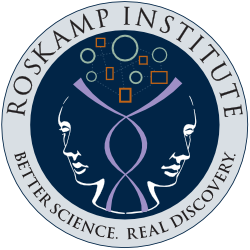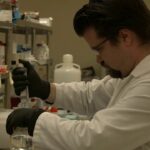The Roskamp Institute Red Tide Study started in 2020 and is currently made up of 250 volunteers from our local community. Fortunately, for purposes of the study, we were able to begin collecting samples of blood and saliva from these participants outside of an active red tide bloom. Now that we’re involved in a rolling outbreak up and down the Florida gulf coast, we are again taking biological samples of blood and urine and measuring antibody levels – that is, the level of antibodies produced to fight the neurotoxin specific to red tide called brevetoxin.
We know there are two types of antibodies: antibodies that are neutralizing, which is what most most antibodies do, but then there are other antibodies that can actually cause disease, including central nervous system disease and brain diseases. The driver of our red tide study was a previous study by a group of scientists from the Department of Health, the Department of Environmental Protection, and universities in Florida that showed there was an excess of ER admissions for neurological disorders such as migraine headaches when the red tide algae blooms. Our study seeks to answer the question, do higher levels of antibody correlate with worsening of neurological symptoms or the remission of neurological signs and symptoms? In other words, if we have high levels of antibodies, do they protect us against the neurological complications of red tide or do they actually precipitate them?
To date, we have made significant progress in sample collection and analysis, but are still in the very early stages of the study. One surprising discovery has been that some participants had high brevetoxin antibody levels, even though they hadn’t been around a red tide outbreak for six months, while all the others had very low levels. So this is one new aspect we are now interested in, specifically the drop off in antibodies in some and not others. Because of this difference, we need to bring into the study people who have been living farther inland and not exposed to red tide as a control group.


